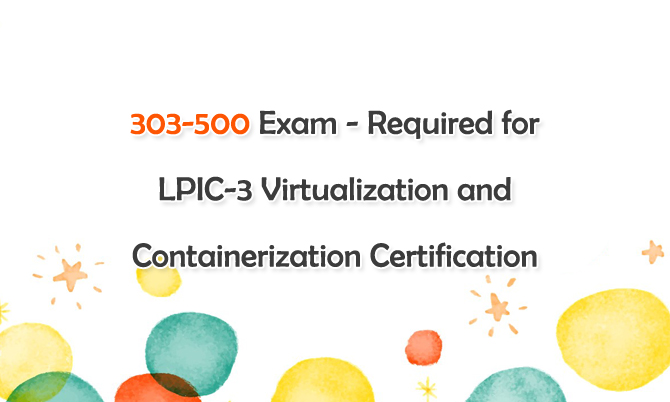LPIC-3 certification serves as the pinnacle for Linux professionals, specifically addressing the intricacies of Virtualization and Containerization. This certification, identified by the exam code 305-300, is tailored for enterprise-level Linux professionals, validating their expertise in the dynamic realms of virtualization and containerization. To earn LPIC-3 Virtualization and Containerization certification, candidates are required to hold an active LPIC-2 certification. This prerequisite ensures a robust foundation in Linux administration, laying the groundwork for a deeper exploration of virtualization and containerization.
305-300 Exam Overview
Achieving the LPIC-3 Virtualization and Containerization certification entails successfully passing the 305 exam, a 90-minute test featuring 60 multiple-choice and fill-in-the-blank questions. Beyond demonstrating knowledge in virtualization and containerization, success in this exam grants candidates the LPIC-3 certification for this specialized field, valid for five years.
305-300 Exam Objectives
Full Virtualization
This section immerses candidates in the fundamental concepts and theories of virtualization. Proficiency is expected in understanding virtualization terminology, weighing its pros and cons, and navigating various hypervisors and virtual machine monitors. Additionally, candidates must grasp migration strategies, snapshotting, and exhibit awareness of key tools like oVirt, Proxmox, systemd-machined, and VirtualBox.
Container Virtualization
Containerization, a critical aspect of the certification, explores concepts such as Linux components, kernel namespaces, control groups, and capabilities. Candidates need a solid understanding of popular containerization tools, including LXC, Docker, runc, CRI-O, and containerd. The curriculum also introduces awareness of alternative container virtualization approaches like rkt, OpenVZ, systemd-nspawn, or BSD Jails.
VM Deployment and Provisioning
This segment places emphasis on the deployment and provisioning of virtual machines. Cloud management tools, such as OpenStack and Terraform, are covered, alongside Packer for system image creation. Candidates are also expected to master cloud-init for configuring virtual machines and Vagrant for efficient management and provisioning.
Key Knowledge Areas and Tools
Throughout the certification process, candidates encounter a rich array of tools, files, and terms pivotal for effective administration in virtualized environments. Key technologies explored include Xen, QEMU, libvirt, Docker, Kubernetes, and various utilities like xl, qemu-img, libvirtd, nsenter, packer, cloud-init, and vagrant.
Study LPIC-3 303-500 Real Exam Questions
LPIC-3 Virtualization and Containerization 303-500 real exam questions from Testpassport are comprehensive resources designed to help candidates prepare for the LPIC-3 exam. This material covers a wide range of topics related to virtualization and containerization, including virtualization concepts, hypervisors, container technologies, and orchestration tools. Testpassport provides 303-500 real exam questions with detailed explanations, allowing readers to familiarize themselves with the exam format and practice answering questions in a simulated environment. Whether you are a seasoned professional or just starting your journey in virtualization and containerization, this material is a valuable study companion that can help you achieve success in the LPIC-3 exam.
The LPIC-3 Virtualization and Containerization certification, encapsulated in the 305-300 exam, stands as a testament to Linux professionals' commitment to mastering enterprise-level virtualization and containerization. By focusing on practical skills and fostering a comprehensive understanding of key technologies, this certification ensures professionals are well-prepared to navigate the complexities of modern IT landscapes. As the industry continues to evolve, the LPIC-3 certification remains a valuable marker of an individual's dedication to staying abreast of Linux technology advancements.
